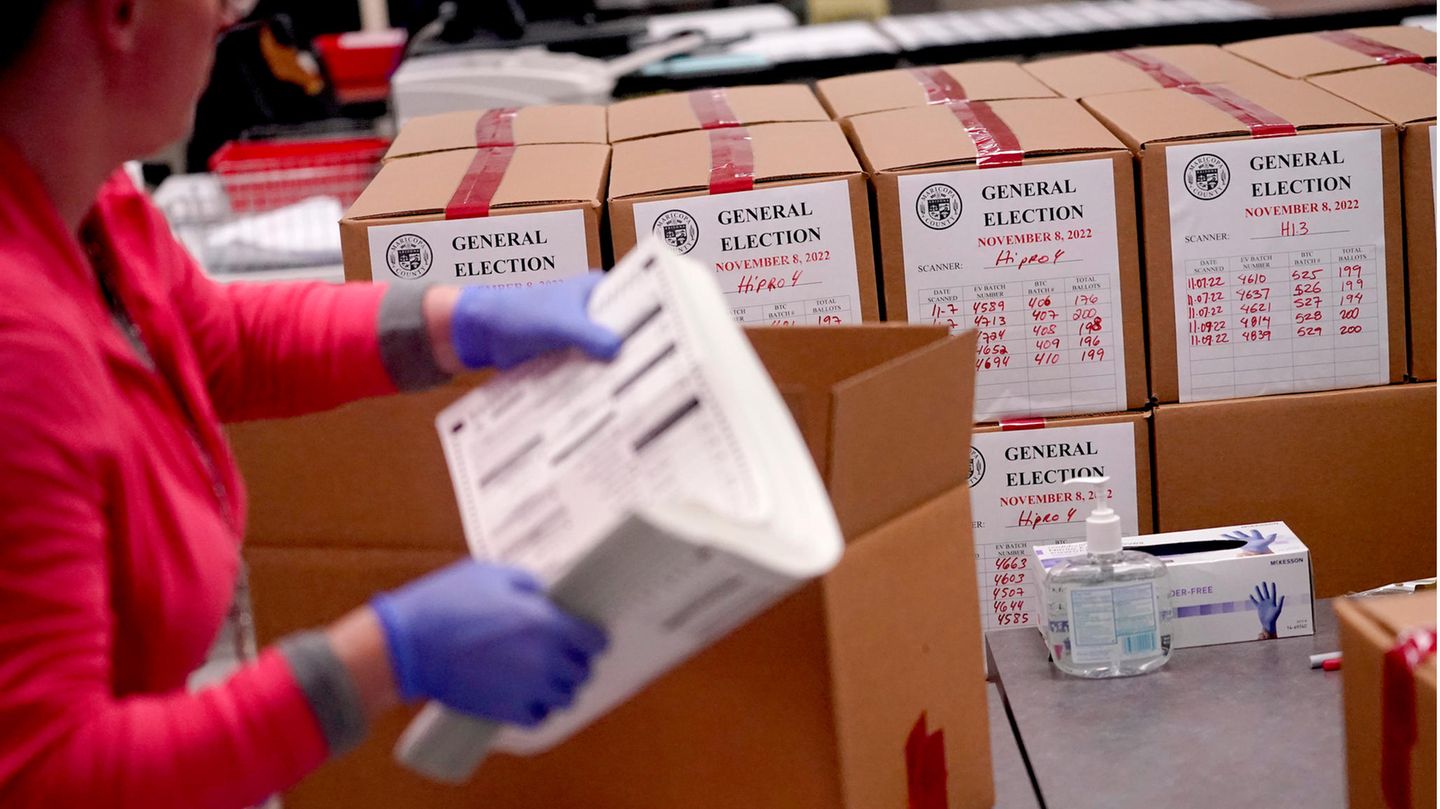Days after the midterms, it is not yet clear who will hold which office and what the majorities in parliament will be. The main reason for the long duration of the count is the sheer mass of votes.
The United States is used to waiting after voting: after the 2020 presidential election, it took around four days for Democrat Joe Biden to emerge as the winner. Even after this year’s midterm congressional elections, the counting of votes seems to be progressing painfully slowly – it is still not clear who will hold the majorities in the Senate and House of Representatives in the future. There are mutliple reasons for this:
An election day with many choices
On the one hand, numerous elections are usually held at the same time in the USA. The midterms elected roughly the entire House of Representatives and a third of the Senate, as well as governors, attorney generals, election officers and legislatures for many states. There were also elections at regional and municipal levels and referendums on issues such as abortion rights and legalization of marijuana. Counting all of that takes time.
Increase in postal voting
In the course of the corona pandemic, the number of postal voters has also increased significantly. Counting absentee ballots often takes longer than counting ballots that have been handed in at the polling station, for example because of signature verification.
Some states also allow absentee ballots received after Election Day if they have an Election Day postmark. California, for example, has set a deadline of November 15 this year – a week after the actual election day. In Nevada, which has a very close Senate race this year, the deadline is Saturday. Basically, since elections in the USA are organized decentrally in the states, there is a patchwork of rules and deadlines.
going to court
Litigation can further delay results: Parties can challenge election results in court for a variety of reasons. The dispute can go through the instances, as in the 2000 presidential election between George W. Bush and Al Gore. At that time, the Supreme Court prohibited a recount of votes in the state of Florida and thus secured Bush’s election victory – more than a month after Election Day.
Tight races in the midterms
To make matters worse this year, the races in many constituencies are extremely close. Major US media can often announce a winner very quickly, long before all the votes are counted, based on voter polls and the ongoing count of votes. But if the duel is on a knife’s edge and postal votes that have not yet been counted could be the deciding factor, that’s difficult.
midterm elections
Election deniers, right-wing agitators and conspiracy supporters: These Trump candidates could move into Congress
What applies to the races in the individual constituencies also applies to the Senate and House of Representatives as a whole: Since very narrow majorities are emerging in the two chambers of Congress, every seat ultimately counts.
While many observers had expected that it would be clear on election night which party would control the House of Representatives in the future, races in Arizona and California, among others, still have to be awaited, which could take days. In Arizona, Maricopa County, around the city of Phoenix, is one of the most populous counties in the USA, and counting the votes here often takes a very long time.
The Senate requires particular patience
In the Senate, three races were still open that would decide the majority in the Congress Chamber: in Arizona, Nevada and Georgia. In Arizona and Nevada it could be days before the winner is determined.
In Georgia, the winner of the election will not be known for about a month. The southern state is almost the only US state that requires candidates to get more than 50 percent of the votes. Because none of the Senate candidates succeeded, there will be a run-off election on December 6th. Depending on the outcome of the elections in Nevada and Arizona, this could decide the future Senate majority.
Source: Stern
David William is a talented author who has made a name for himself in the world of writing. He is a professional author who writes on a wide range of topics, from general interest to opinion news. David is currently working as a writer at 24 hours worlds where he brings his unique perspective and in-depth research to his articles, making them both informative and engaging.




